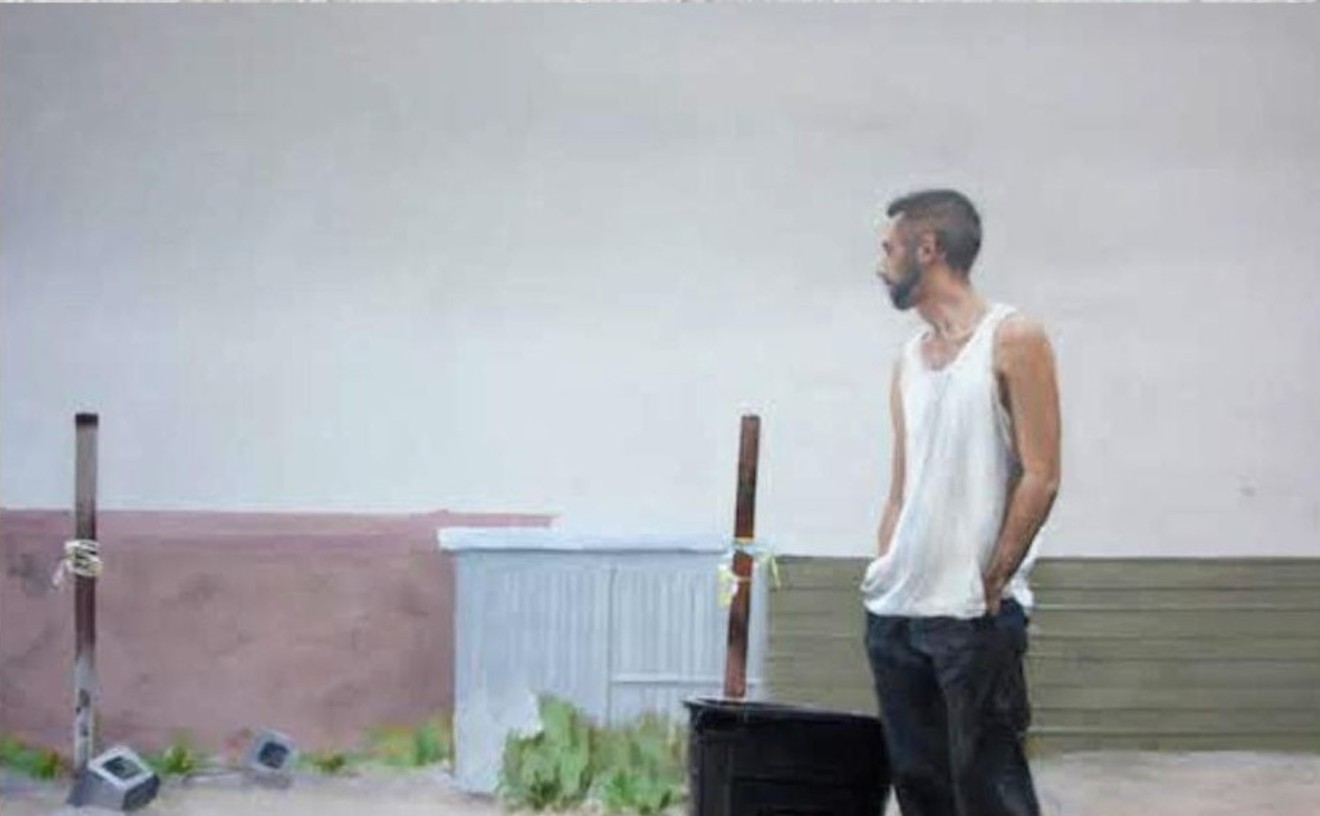Charles L. Mee's Soot and Spit is, in its ASU première, beautiful to behold. Cloaked in shadows, fractured with light, its 90 minutes chug along earnestly, sometimes passionately. If only Mee's play (if, indeed, that's what this is) were more entertaining. And more edifying. One leaves the theater having seen a lot of attractive, performance-based scenes that tell us next to nothing about its subject, the deaf-mute visual artist James Castle.
Much of what we see appears to be enactments of Castle's many drawings, made with materials (like soot and spit) he found on his Idaho farm because, as a misunderstood special-needs child, he was denied the use of art supplies after the headmaster at his school insisted he spend his time learning instead to speak and to sign. Castle's contraband drawings are informed by his autism and his understanding of the world as a silent place, and so Soot and Spit tends to ramble and derail in the telling of its nonlinear story.
A group of women parade past with chairs on their heads. A phone rings, and a beautiful chanteuse in a shiny gown sings the word "hello" over and over again. At one point, a live chicken arrives onstage. Later, a woman applies lipstick to her entire face. There's an overlong bit involving a half-dozen people dressed in cardboard boxes, each of whom delivers a nonsensical soliloquy about nothing. And then there's a funeral, after which Castle's work is discovered by an arts broker who buys it all up and hauls it away, presumably toward some kind of fame.
Performed in conjunction with Detour Company Theatre, a Phoenix-based troupe that produces theater for and by adults with developmental challenges, the production has its merits, even during excessive, languid scenes. The singers are all in fine voice and backed by an enthusiastic bluegrass band, and director Kim Weild makes interesting directorial choices, as when she repeatedly turns Castle away from us as he "draws" the scene with his back to the audience.
Occasionally, it does seem that the talents of the differently abled cast members — some with Down syndrome — are being exploited here, as when a group of them come bouncing out atop big, rubber balls, followed by another who's blowing bubbles. Why?
At the center of all this pretty mayhem one finds Robert DeMayo, a deaf actor whose subtle performance, even in repose, is stunning. If Mee's story is a storm of absurdist excess, then DeMayo, as Castle, is the eye of that storm. It's his gentle presence that is the real prize in an otherwise jumbled performance piece that only vaguely resembles a play.










